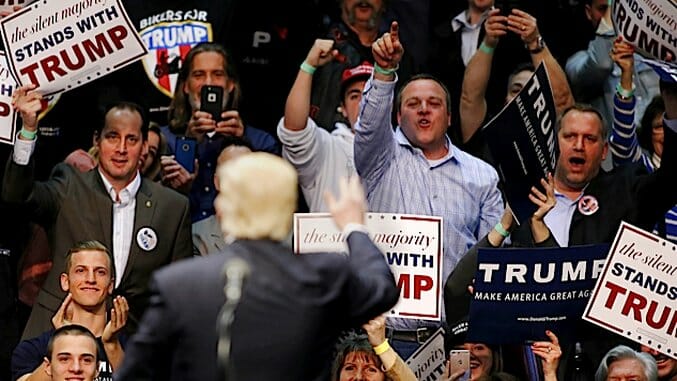This Election Was All About Race, But Not the Way We Thought
Photo by Eduardo Munoz Alvarez
Through early voting, it looked as though this story was to end with the bad guy’s chickens spectacularly coming home to roost. Election Day 2016 would be the culmination of a tale in which Donald Trump, from the first minutes of his presidential campaign, sowed the seeds of his eventual downfall, spouting a message of intolerance towards minorities that the United States would ultimately reject. As reports last week revealed the Latino early vote was way up—by over 100% in Florida!—and with almost every major poll showing a narrow Hillary Clinton win, it appeared this election was set to be about inclusion triumphing over marginalization in a new, more diverse America. After an anxious 18 months, the relief would be enormous, the sense of cosmic justice immensely satisfying.
That isn’t what happened on Tuesday. Instead, hate and prejudice won out. Not all Trump voters will have thought they were voting from such a foul place—for many, a Trump vote was simply a way of signaling dissatisfaction—but the Trump package was never just about being ‘anti-establishment.’ His campaign had some vague ideas, but was defined most clearly by racism. This election year, America was given a bad choice, but not a tough choice. It will forever be to white America’s shame that it selected unstable and ethnocentric over the relatively unthreatening More Of The Same. Trump’s win is a white triumph. The most prominent beneficiaries of this victory are not anti-establishment types, but white supremacists, David Duke’s KKK, and “angry young white men who think rap music and Cinco de Mayo are a threat to their way of life” (thanks, Aaron Sorkin).
Those who voted Trump in ‘protest’ don’t get to act innocent. They saw what Trump stood for, as we all did. A protest vote for Trump by white America was a vote from a place of privilege; a place where it was OK to risk Trump’s Hispanophobia, his Islamophobia, his veiled anti-Semitism, because white America was never going to be affected in the first place. Some pundits are trying to break this result down by class and by wealth, painting a picture of a working-class revolt, but the poorest in society voted for Clinton, while the wealthiest and most privileged voted Trump.
-

-

-

-

-

-

-

-

-

-

-

-

-

-

-

-

-

-

-

-

-

-

-

-

-

-

-

-

-

-

-

-

-

-

-

-

-

-

-

-








































